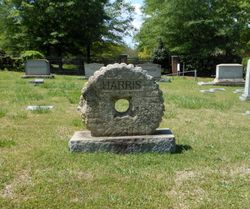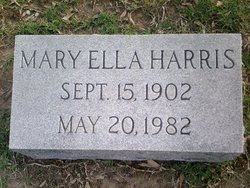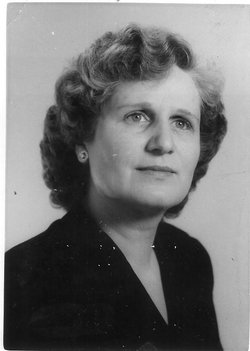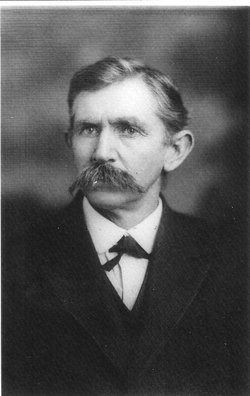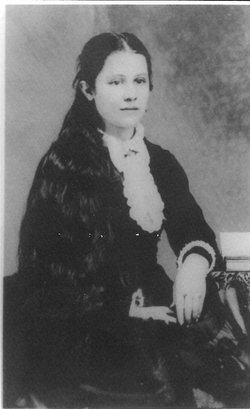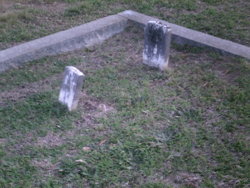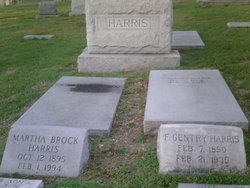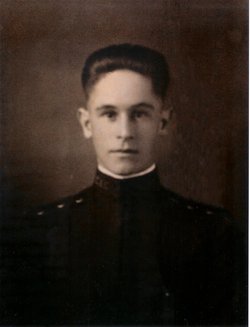| Description |
: |
Mella Harris was the youngest daughter born to Weste Harris & Hattie Gentry Harris's 10 children. She was a spinster and a dreamer who read romances and 1940's crime novels in her spare time. She was professionally an English teacher in the public schools for many years, teaching the highest level classes. Many of her students went on to become leaders & politicians, at least one became the Mayor of Spartanburg & remembered her as the toughest teacher he'd ever had. He said, "She was scary, but you learned in Miss Harris's class!" When I...
Read More
|
Mella Harris was the youngest daughter born to Weste Harris & Hattie Gentry Harris's 10 children. She was a spinster and a dreamer who read romances and 1940's crime novels in her spare time. She was professionally an English teacher in the public schools for many years, teaching the highest level classes. Many of her students went on to become leaders & politicians, at least one became the Mayor of Spartanburg & remembered her as the toughest teacher he'd ever had. He said, "She was scary, but you learned in Miss Harris's class!" When I asked Mella if she became a teacher because she loved teaching children, she said in her dramatic, self-conscious way, "Heavens, no!" She explained that in her youth, there were only two respectable jobs open to young ladies from respectable families: nursing and teaching. "And I was NOT going to spend my life emptying bedpans." I got the feeling there was more to it than this, but Mella had a tendency to simplify things in a self-deprecating way when talking about herself. I think she did love teaching, if only because she wanted to be productive and respected, and she said she felt she had been good at her job, and she never had any children of her own. But when she retired, she expressed great relief that she was finally out of the school system, the last years had been hard for her. She had grown up in a segregated world, when desegregation was forced on this area she was glad to be out of the system, she told me she felt sorry for her fellow white teachers who were not able to retire yet. Mella told me once of an incident where a darker child of foreign-born parents had become upset when she called her "a cute little monkey", Mella said she never intended it to be derogatory, it was meant as a term of endearment. I believe her, but it was obviously becoming a very different world, a world full of potential racial pitfalls she was quite glad to give up, she wasn't ready for the change. She also told me that students were overall becoming less respectful and more unruly, harder to engage, she said at one point she even climbed up on her desk in one class just to get their attention. And it did. I could see her doing such a dramatic thing, she was quite determined to be a good teacher.
Mella was born in 1902 in the house her parents built near the Southern Shops railway yards on land her grandfather Sheriff L Miles Gentry had given them, it was a house her father had built with his own hands and enlarged as the family grew, adding a 2nd story and then a study off to the side for himself. She had lived in that house all her life and she said she fully intended on living out her whole life there. She called it "The Beehive" because she said it was always buzzing with people. She and two of her sisters lived there in the 20's & 30's with their husbands & children, as well as the two nieces Mella raised as teenagers & sent to Converse College. That is, they lived there until her mother Hattie died in 1939 and their brother John gained ownership of the land by lying to a judge, according to Mella, and he sold it out from under them and forced her to move; the land is now used for industrial purposes. Mella never forgave her brother, and she said she never spoke to him again. When he died, she did not go to the funeral. I asked her once why she hated John so much & she gave me several examples of his perfidy & told me that he was a "scoundrel", she said he had no morals, he was a sociopath. One of the things she recounted to me was when John tried to cheat the federal government, she said he persuaded a mentally ill black man to join the military knowing they would eventually have him committed, then he told the man's wife he would arrange for her to get a pension. Mella said he would go to the illiterate woman's house once a month and get her to sign her X on the back and cash the check for her, but he was not telling her the truth about how much money the check was for and he was keeping some for himself. I asked Mella how he was found out, she said the woman eventually told someone else she thought she should be getting a bigger pension and they checked and reported John. Mella said he only escaped federal prison because he had "friends in high places." Mella told me of another instance I won't repeat here, and said the only time she ever felt sorry for John was when their brother Gentry committed suicide in 1935, she went to John's house & almost knocked on his door, but she hesitated, went to the window & looked in instead. John was sitting alone with his head down in his hands. Mella told me wonderingly, "I actually felt sorry for him". But she told me she also held him partly to blame for their brother's untimely death, so in the end she rallied herself, turned & went away.
Mella was emotional and romantic in the way that teen girls are romantic, she constantly dreamed of the 'perfect' guy sweeping her off her feet. In fact, Mella left a short story in the late 1940's about marrying a soldier from NY at age 15 in secret just before he went off to the "Great War" in 1917, she called it "Torren Tree Echo", a name she said had a secret personal significance she would never share with anyone. Mella wrote she later lost touch with him when he eventually stopped writing her from Europe and she never knew what became of him & later couldn't even remember his name, by the time she wanted to remember in the 1940's she'd long before burned all paperwork related to him because she felt jilted. She never told her family about the impulsive secret marriage in the mountains that Sunday to the curly-haired red-headed soldier boy from New England. I only read her story after she died, but she had tried to tell me about him shortly before she had to be put in a nursing home, Mella had talked about a youthful escapade that she never told anyone about, she made it clear it was a defining life moment. I didn't realize the significance at the time and I regret I didn't press her for more details. Her heir & niece Margo, whom she had taken in when she was 12 and was mentioned in the story, did not want to believe the story of the marriage was true when she read it long after Mella died, but I believe it because Mella made it clear to me that day in her house that her "Gustav" was the center of her life at that time, he was her first love, she never forgot him. Mella told me she had received a marriage proposal from a male friend in Tennessee in the 1940's that made her remember the teenage marriage to 'Gustav' so she needed to revisit the event to check on the marriage license and whether it was legal, but when she tried to remember the details she couldn't even remember where it took place or who performed the marriage and she had burned the marriage license long before along with his letters. The trip had all been arranged by the young solder who had told her family they were just going for a Sunday afternoon ride in the mountains in a borrowed car to see the turning fall leaves before he left for Europe. I think she wrote the story in part to jog her own memory, but by then she wasn't even sure of "Gustav's" real name. She told me she hired a lawyer in Asheville to search for the marriage record, but he reported back it wasn't in Asheville. She wrote they had driven a long way after they left the Grove Park Inn, they stopped first to Asheville around noon and then took a long winding drive to a neat white house in a row of neat white houses arriving very late in the afternoon, she didn't know where. She never found the record, but I did later in a book on western NC county marriages. She said her hand was shaking so hard she didn't see how anyone could read her handwriting, and she was right, the book put her listing in a back section of undecipherable marriage licenses.
Mella told me she wanted more than anything to be a famous writer. Late in life she self-published a little booklet of poems she had written throughout her lifetime, she gave them away to friends who were interested. She also told me she was very disappointed that she didn't have the talent to be a professional writer.
By the 1930's, Mella had become lifelong friends with the mother & sister of Thomas Wolfe of Asheville, NC, a then-famous author of "Look Homeward Angel", an autobiographical novel that was very popular at that time, I think she had a strong crush on "Tom" because she kept his picture & other keepsakes about his family like a shrine on the chest of drawers beside the front door, when I commented on them once she told me about Tom with obvious feeling. She kept in touch with his family for years after he died, one of her photos was of her with his mother and sister standing at his tall gravestone of an angel. But Tom evidently did not return her feelings, he returned back to Berlin where he died of TB in 1938. Years later, Tom's brother Fred Wolfe used to call Mella often & ask her to ferry him around town on errands, she embarrassingly told me one day that she had been getting love letters from Fred & produced the latest one to prove it without being asked, it was scrawled out on several pages of 8/11 notepaper, most was unreadable, only the 1st few lines were decipherable, they were quite amorous. Mella said he was a drinker, & she laughed embarrassingly about his refusal to walk anywhere, even just around the corner. But I think she was secretly proud of his devotion to her.
Mella developed dementia the last few years of her life from mini-strokes brought on by the implantation of a pacemaker for atrial fibrillation, & she lived for 2 yrs in a nursing home. She had deliberately lived alone most of her adult life, having only her niece Margo as a companion who returned for yearly visits every Christmas after she moved to New York City. I once asked Mella if I could move into the spare bedroom for a while, she seemed horrified by the suggestion. Then she apologetically explained she had only found one person in the world she could live with & that was her niece & ward Margo, whom she had written about in her autobiography as the child she felt she and "Gustav" should have had; Mella seemed apologetic for refusing me but she also seemed quite determined to have her solitude. I can remember visiting her many times over the years & she would have her bedroom phone with its long cord put out in the foyer with a pillow on top of it so she wouldn't hear it ring, she said she hated to be "importuned" by anyone, especially door-to-door salesmen. If a stranger rang the doorbell, she wouldn't answer unless she knew them or they were a government official, she would go just far enough into the tall dark central foyer to see who it was without being seen, or she would ask me to go look. And there would always be stacks of paperback crime novels sitting on a high-backed wooden bench in the hall next to her bedroom door, getting higher & higher, she would buy them & read them & then buy another, she said she never read each one more than once. I remember her being so thrilled when a used bookstore opened in town that would take in paperbacks & resell them, she promptly took them all down & traded them in for unread titles.
Once I told Mella I was interested in old coins, that I'd started saving them. She pointed me to a drawer in her front sitting room & said "Look in there." There were a number of Confederate bills in the drawer, she said "Take one of each denomination." I got a $1, $2, $5 & $10. She said they were money her grandfather David Golightly Harris had left over from the Civil War, she apologized for there not being any bigger bills, said the female houseslave ran off with all the big bills near the end of the war. Mella said the slave was a disgruntled woman and she thought she was stealing something valuable, but of course by then the money was worthless. She said that every niece or nephew who came to visit who expressed an interest in collecting old money was given the chance to take one bill of each denomination, by the time I saw them there were few left. The revelation of the old money surprised me as Mella had never mentioned them before, but it was typical of her unexpected generosity. When I had expressed interest in quilting, Mella produced a velvet quilt that had been made by her family, she had removed the rotten backing and batting and said she had started to replace a couple of worn-out top pieces with new ones, but when the job proved harder than she thought it would be, she lost interest and stopped. She offered me the quilt. I took it gladly and bought new polyester batting and a new brown cloth backing the color she said it had been and sewed it back together, mending some of the gold briar stitching on the top seams. It was a beautiful quilt made of colors that aren't sold in stores today with a circle in the middle and four large squares around it and smaller pieces filling in the rest. Mella said it had been made out of the Harris women's best velvet party dresses, and it was usually placed on top of all the other plain cloth quilts as a show quilt or what we would call today a bedspread but I think they called it a counterpane. She said all the girls in the family had worked on it at one point, I could see different types of briar stitching made by different hands. Mella said she had given another similar velvet quilt to her niece Marjorie, who later showed it to me, hers was frayed and not in near as good a shape as the one Mella gave me. I was very glad to get mine and intended on keeping it and willing it to someone in the Harris family after I died, however I lent it to one of uncle John Harris's daughters who came to the house out of the blue one day in the 2000's and asked to "borrow" it, she never gave me her contact information, she did not return it to me, she has never contacted me again. I should never have trusted her. I have willed that quilt to my cousin Dr Margot Harris Anderson.
Mella inherited many of her parents' possessions, her big early 1900's house was filled with their heavy 1880's wood furniture, she had her father's grandfather clock in the foyer with his handwritten names and dates of births of all the children (some wrong), a big dining room sideboard with mirror, a large dining room table, etc. Mella had bought the house in Hampton Heights from a friend after her brother sold her treasured family home the Beehive, she took meticulous care of her house & yard, with the help of a special nephew, until near the end. She was a very active woman, having been a physical education major & graduate of Winthrop College who worked in the Spartanburg public school system all her life, retiring about 1969. In later years, I remember her fast, purposeful walk across the hardwood floors, always dressed in a "mu mu", a simple billowy cotton print dress with a square neck & cap sleeves, I overheard her on the phone one day happily telling someone where to buy them; near the end she told me she had developed a hatred of wearing anything confining pressing against her body. Mella walked with determination, focusing on getting just one thing done at a time. Putting on airs tired Mella. Mella always seemed ill-at-ease in public, like she was just tolerating the needed social displays before she could make her excuses & slip away & get back into her mu mu. When she was alone at home, she always seemed happiest, and she warmly welcomed visitors but only if they didn't stay too long, & when out in public she would always make an excuse to leave before everyone else; I pressured her to stay once, & she said it was important to not wear out one's welcome. Mella said her niece Margo was the only person whose constant company didn't tire her out, but I know she enjoyed the company of her nephew Edwin Foster, who often helped her out with the house repairs, and his brother Julian.
I remember Mella as a fiery redhead, once she came back from visiting Margo in New York wearing a different shade of red hair dye & I commented that it was almost luminous. She was very pleased and explained it was as close to her natural color as any beautician had ever been able to get, & then without prompting she gave me a very detailed description of exactly what she told the NY beautician her natural color had looked like. She said none of the local beauticians here in Spartanburg had been able to recreate her natural color. She was obviously very proud of her hair color, her parents and most of her siblings had dark hair, she was the only one who inherited her grandfather Gentry's bright red hair & blue eyes, she sometimes wore a blue concentric 3-string bead necklace and matching sky blue silver ring. I have a photo of Mella when she was 15 standing in her parents' yard holding a cat, she said the very long curls down past her waist took days to create using rag rollers; sometimes she would leave her hair rolled up all week for Sunday church services or a special event. Mella, like her mother & sisters, had long, straight, very thick hair down past her waist when she was young. I wanted to contribute that picture with the long curls to "Spartanburg County, A Pictorial History", but I felt I had to ask Mella's permission first, and of course she denied it, as I was afraid she would. I regretted asking her, she went into the nursing home a month later. That picture deserved to be in the history books. Her self-deprecation puzzled me, to me she was a successful woman working in a man's world, independent & strong-willed, but she always avoided being in the spotlight. Mella had a touch of low self-esteem underneath, any attempt at praise was always met with downturned face and protestations of unworthiness, though she was willing to give quick praise to others when due. I once thought her protestations were just manners, but later I realized she really did not believe she had lived up to her or perhaps her parents' high expectations. She was raised in a family which strongly emphasized moral Christian behavior, but they also judged worldly accomplishments and I wonder if Mella felt she had been able to accomplish enough to please her demanding mother whom she felt very close to.
I have a picture of Mella's mother at about 16 with her hair down, so I once asked Mella how long her mother's hair actually grew because in all the later pictures it was piled up on her head, Mella said her mother Hattie never cut her own hair, it was down to her knees until right before she died of a stroke. Her mother Hattie was born in Victorian times when long hair was highly prized so hers was obviously a family treasure. As an adult, Mella started keeping her hair short as became the style after women began bobbing their hair in the Roaring 20's, and the rest of her life she kept it permed and short (see above). I suspect she first cut it in college, but I never asked her, she said she had learnt to swim in college as part of her physical education major and she spent hours in their pool. When I told her I was studying the crawl, she said she had never been able to master the crawl's requirement of coming up for air to the side while swimming, because of that her Phys Ed teacher had threatened to fail her in college. She also said she had taken CPR as part of her course and one summer day when she was working as a lifeguard at a local pool she had to rescue a person on the bottom of the pool and pump the water out of their lungs. She succeeded in saving their life.
Mella had a great figure for many years. After her niece Margo died, Edwin gave me snapshots of Mella's younger life, snapshots Margo had shown me and told me she had secretly rescued from Mella's trash can. I can remember Mella near the end of her life telling me she'd recently thrown away all her photos except a handful because she hated how she looked, and her self-loathing shocked me because I always thought she didn't care much about looks because she never commented on it, it made me realize I didn't really know her inner thoughts. She showed me one snapshot she kept of herself at the beach near sunset in a bathing suit in profile, kept just to show people she'd once had a thin figure she explained, & the headshot photo from school in which she was looking upward in a way her principal commented made her look like "an angel" (see above); she laughed and said by way of explanation that the school picture was made the day she returned to school after a bout with pneumonia so she was just very weak (the implication being she wasn't an angel). She chose only the 4 pictures of herself to keep and show. It was like she was trying to get rid of something in her past, keep just a few good memories. I remember that she had always avoided having her photo taken, when family were visiting she would insist on being the one behind the camera, as a consequence I only have one picture of Mella taken in later years, my uncle made a video at Christmas and when Mella came into the camera range in her mu mu, she ducked her head and scurried out of view.
Mella didn't like thinking or talking about the past, when I once pressed her for information about her mother's family, Mella told me that the past was unimportant, she at first evaded my questions; then when I kept asking she adamantly blurted out, "It is by our FRUITS we shall be known, NOT by our roots." (her strong emphasis) The fact that one of her sisters had become an historian & genealogist irked her to no end, she informed me. She eventually volunteered what I'd asked about on a subsequent visit, but the emotions it seemed to invoke in her made me feel guilty for bringing them to the surface. I got the feeling there was a lot Mella wanted to forget. I think she wanted to live in the present, & create good new memories.
I realize now that Aunt Mella was actually never very open with anyone, she was a very self-conscious person, intent at putting on a good public face to others, but underneath her public face hid a very emotional, easily hurt somewhat sad person, which she tried to hide, most of her poems she later published are sad. She never wrote about her successes. She wrote she never found the perfect partner she'd dreamed of as a teenager, though she thought she had with 'Gustav' at first. She formed other relationships later, both male & female, I was told by her niece Marjorie that she had a female lover in the 1930's who was the wife of a prominent local rich businessman, and one of the pictures that Margo saved from the trashcan was probably of them together at Rainbow Lake with her three nieces, but none were ever destined to be "the one". And she never had the children of her own that she wrote she dreamed of having with "Gustav", her teenage dream beau whose reality came up short, though her niece Margo became her surrogate child and trusted lifetime companion. Mella never became that successful writer she so very, very much wanted to be. I think she was a successful person because her life touched many others in many good ways, she never hesitated to give of her time, friendship and possessions, but at the end she seemed to feel personally unfulfilled.
I'll always remember her most often as a vibrant, busy, interesting person who was always productive and interested in helping my family, she always made me & everyone I knew feel very welcome in her spacious old home. I wish I had known her better.
--Jennie Rhinehart 7/2020 |

